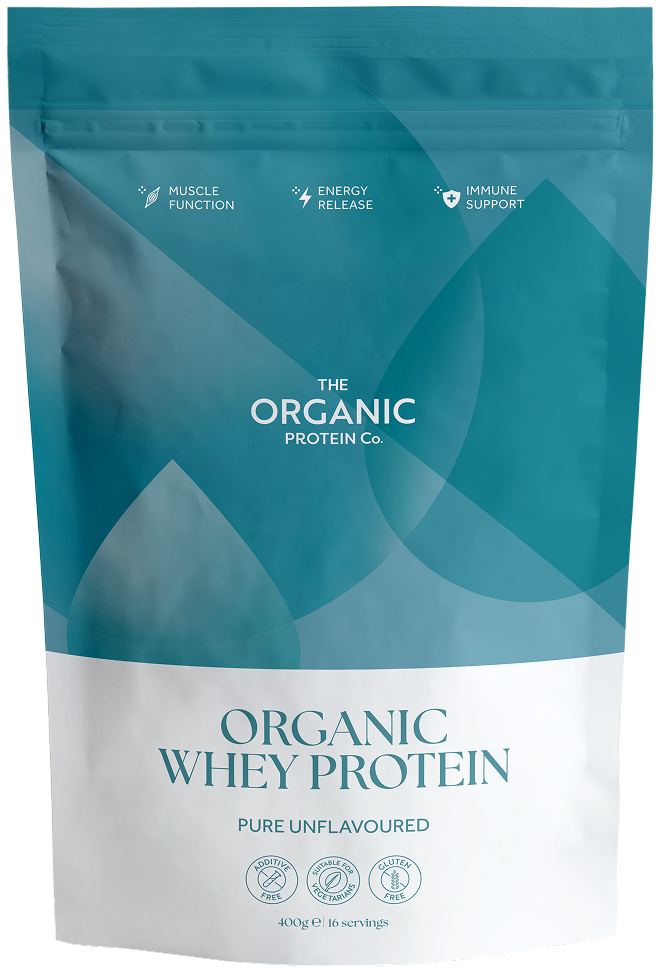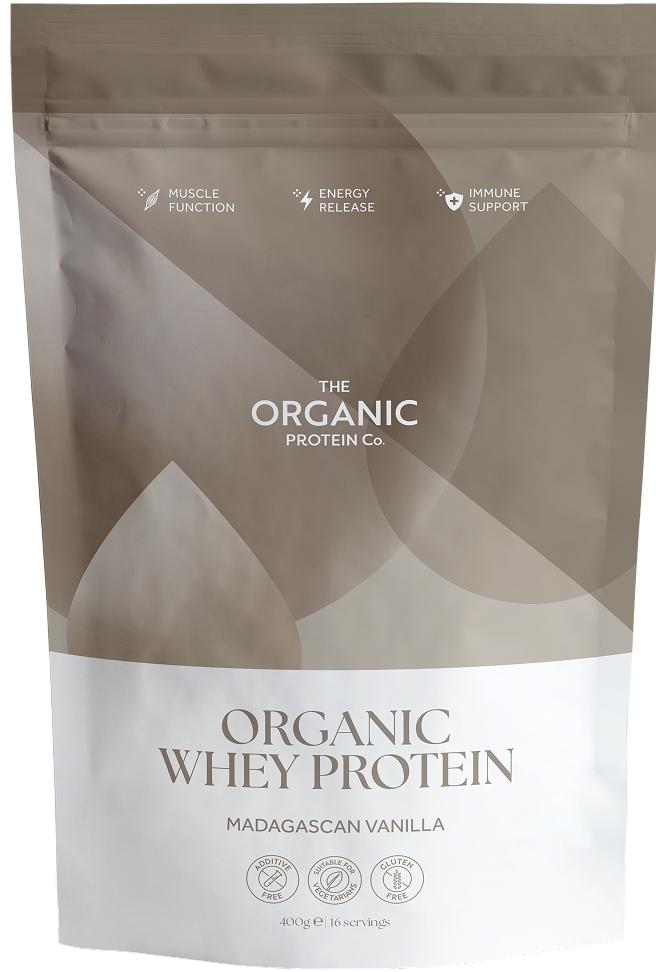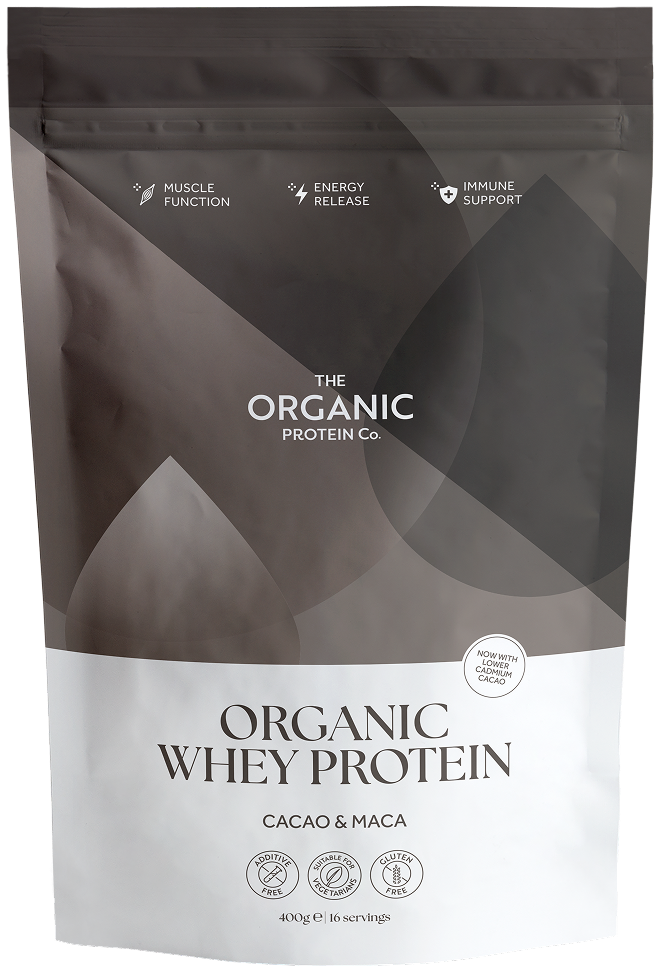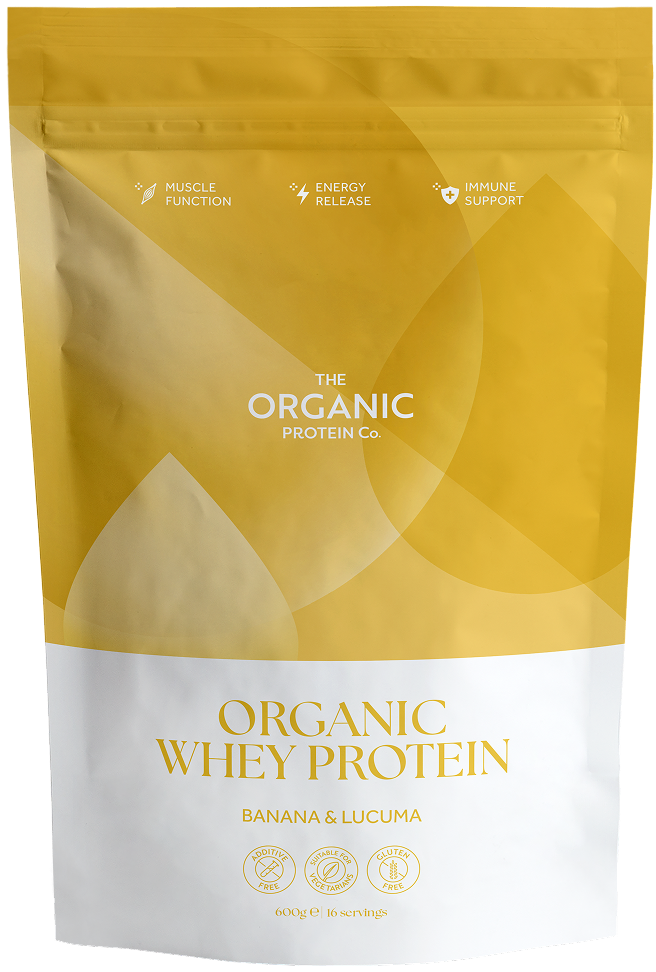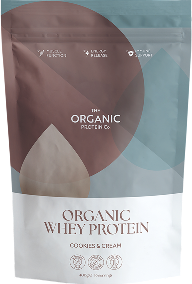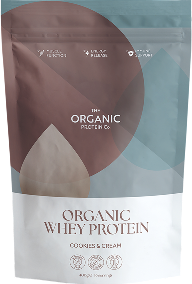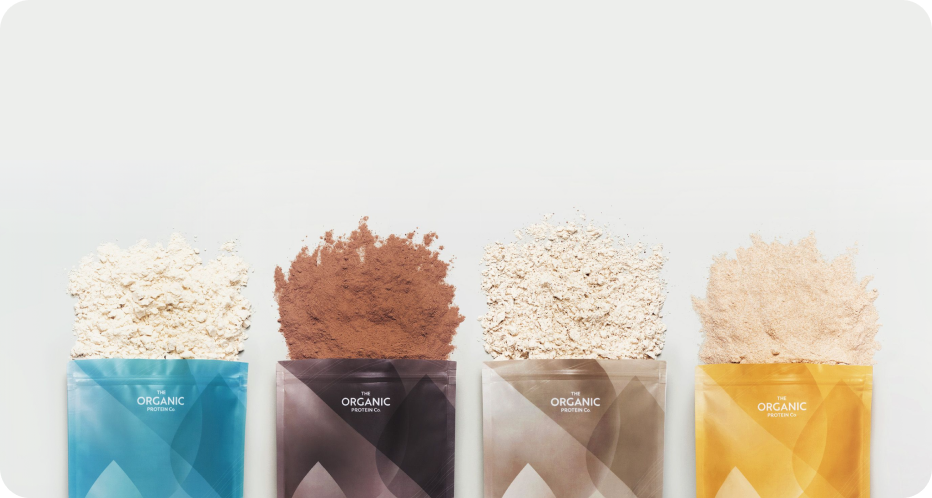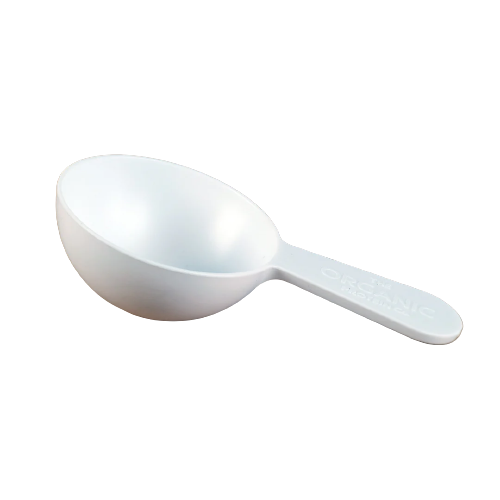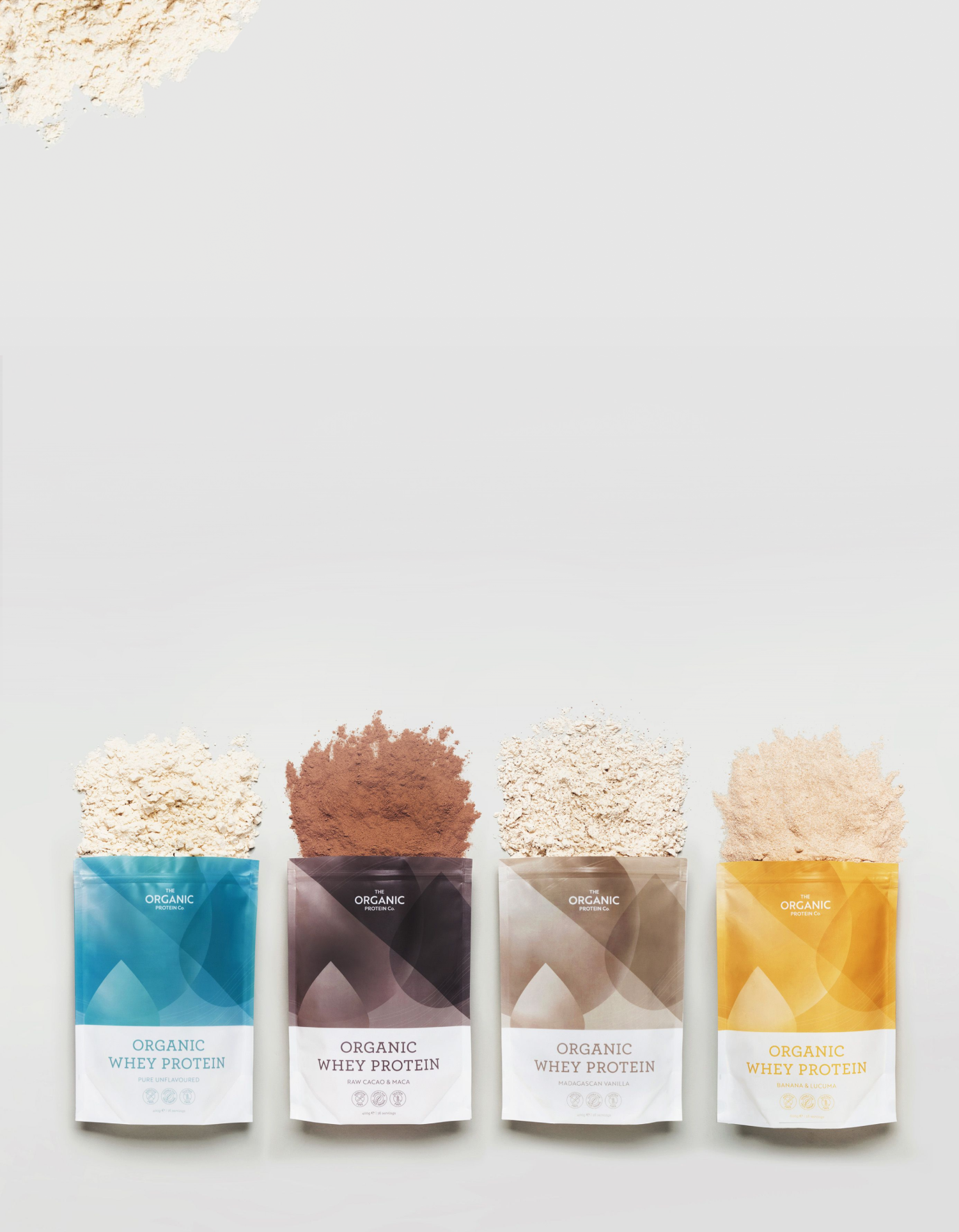It’s fair to say that the world of protein powders has historically been marketed towards men, but as the protein supplement market continues to grow (1), the benefits of a supplementary protein source are becoming evident for all.
With this growth in popularity has come a huge number of protein powders on the shelves, which can complicate choosing the right option for your needs. Our guide below explores whether men and women should prioritise different features and benefits in their chosen supplement, and what exactly makes the best protein powder for your individual goals.
Understanding the protein needs of men and women
Protein requirements can sometimes vary between men and women owing to physiological differences such as body composition, overall health goals and activity levels (2).
Men, typically having a higher muscle mass and body weight, may require more protein compared to women for muscle health and maintenance. However, women's protein needs can increase during specific life stages such as pregnancy or menopause due to changes in hormone levels and body composition (3,4).

What are current protein recommendations for men vs. women in the UK?
As it stands, the British Nutrition Foundation recommends a daily protein intake of 0.75g per kg of body weight (5).
This means that, on average, the current recommendation for men is 56 g of protein a day, while for women it’s 45 g a day. These recommendations are based on body weights of 75 kg for men and 60 kg for women.
Does protein play a different role in men's bodies vs. women's bodies?
Adequate protein intake is not only fundamental for maintaining muscle health (6) but also plays a crucial role in hormone regulation, impacting everything from reproduction to stress response (7). It’s vital for enzyme production and the functioning of neurotransmitters, influencing mood and cognitive functions (8).
Protein also contributes to the structural integrity of cells and tissues and supports the immune system (9). These processes are all vital to the functioning of the human body - for men and women. While there is some evidence that there is a difference in how the sexes metabolise protein (10), aside from varying levels of protein needs, the role of protein is much the same between men and women.
So, you should consider your lifestyle, age, physical activity level and health objectives when determining your protein needs. Tailoring protein intake to these factors ensures that your body's requirements for building and repairing tissues, supporting metabolic processes, and maintaining overall health are met.

How to choose the best protein powder for your needs: men & women
When choosing the best protein powder to suit your health goals and individual needs, the below factors are important to consider for both men and women.
Where relevant, we have highlighted any differences between the sexes which can be considered when making your choice; but, in general, it is considered that protein powders targeted at specific sexes are a marketing tactic more than a health consideration.
What are your health goals?
Your individual health goals are one of the major factors to consider when choosing the best protein powder for you. This will impact not only the protein source you opt for but also how you use your protein powder.
Read on for some of the key considerations to keep in mind based on common health goals when using a protein powder supplement.

Muscle health and support
One of the main reasons that protein powders have become a popular option is owing to their ease and convenience for supporting healthy muscles. If this is one of your main health goals, one key factor to keep an eye out for is the essential amino acid profile of your chosen protein powder. This applies to both men and women.
Where possible, you should opt for a protein powder which contains all 9 of your essential amino acids - known as the ‘building blocks’ of the human body. These amino acids can only be supplemented by the food we eat, so it’s vital to ensure their sufficient intake for optimal muscle health.
A ‘complete’ protein source is a protein which contains all 9 of these amino acids; this includes whey protein, casein protein, egg white protein, soy protein and hemp protein. Branched-chain amino acids (BCAAs) are also important for muscle health and can be found in all of the mentioned protein sources.

Muscle health and women’s cycles
While the benefits of different protein sources may not differ too much between men and women, women’s menstrual cycles can influence their impact. It’s known that oestrogen is important for maintaining muscle mass in women (11). There is also some evidence which suggests that the ovulatory phase is the optimal time to build muscle due to heightened oestrogen levels (12).
Weight management
The role of protein in weight management is well-known, with a higher protein intake supporting our metabolism, increasing satiety (and therefore reducing unnecessary snacking) and changing weight-regulating hormones, helping us to stay feeling full (13,14,15).
Research has shown that “men and women respond similarly to caloric restriction diets differing in protein content” (16), which suggests that protein intake for weight management should be tailored to the individual, not their sex.
When choosing the best protein powder for weight management in men or women, studies have shown that animal and plant-based protein sources can be equally effective for weight loss (17). There is strong evidence to support the use of whey for weight loss (18).

“When we have a higher protein breakfast with whey protein, it reduces the production and secretion of the hormone ghrelin, keeping you fuller for longer throughout the day.” Belle Parrish, Registered Associate Nutritionist (AfN) at Balance by Belle
For weight gain, look for protein powder blends which are high in protein, carbohydrates and fat. Some protein powders are intentionally formulated to provide higher caloric content to aid in weight gain.
Additional nutrients, vitamins and minerals
Outside of the protein source, protein powders can offer additional health benefits for both men and women. This is because, depending on the type of protein powder, they will likely contain other nutrients, vitamins and minerals which can contribute to a balanced diet and optimal health.
Specially formulated protein blends for women's health
-
Some protein powder blends directed at women have additional supplements added which are intended for women’s health. For example, it was found that nearly 40% of women aged 12 to 21 in the US were iron-deficient (19) - protein powders with higher or added iron could therefore be beneficial.
Some protein powder formulations blend protein powder with adaptogens or phytoestrogens designed to help women manage perimenopause and beyond.

Specially formulated protein blends for men's health
For hormonal balance in men, consuming adequate zinc, magnesium and/or vitamin D can provide support, particularly for testosterone levels (21,22,23). Some protein sources naturally contain zinc and magnesium – such as whey (24) – and some are blended with ingredients that contain these vitamins, such as cacao for zinc or bananas for magnesium.
Cardiovascular disease mortality is higher in male populations (25), making heart health important for men of all ages. Consuming omega-3 fatty acids and fibre may help with cholesterol levels (26,27) and contribute to lowering the risk of heart disease. These nutrients can be found naturally in some protein powders such as whey (28) and hemp (29).
- Adequate zinc intake has been highlighted as key in the prevention of prostate disease development or progression (30). Certain protein powders can be an excellent source of zinc – such as whey – though caution has been urged over excessive supplementation of zinc, which can have the reverse effect (31).
Taste and texture
Beyond the scientific health benefits of your chosen protein powder, be sure not to overlook one important factor: its taste and texture! Whether male or female, the flavour of your protein powder will be central to whether you enjoy using it.
Look out for protein powders that use gentler processing methods, retaining their natural benefits and avoiding a chemical or overly processed taste. ‘Cleaner’ protein powders - those which aren’t artificially sweetened and avoid added ingredients like thickeners or emulsifiers - typically use whole food ingredients to deliver a higher quality, more pleasing taste, with the added benefit of avoiding potentially harmful ingredients for your body.
Find the best protein powder for your individual needs
As we’ve seen, differences in the best protein powder for men and women are minimal. In fact, the best protein powder type is the one that meets your health goals, taste preferences and digestibility needs.
Our guide to choosing the best protein powder for overall health and wellbeing provides even more useful information on making your decision. By testing different protein powders to find which one suits you best, you can make an informed decision for your optimal health.

